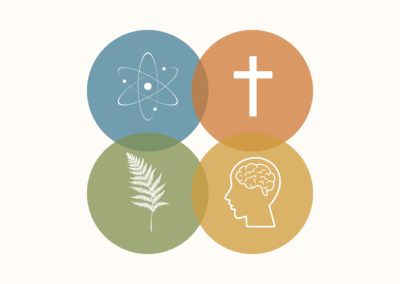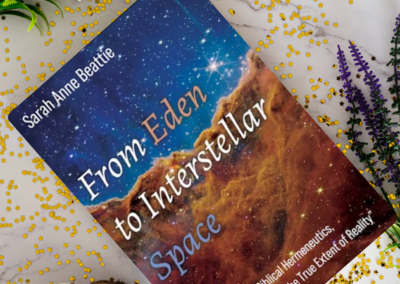
By Nicola Hoggard Creegan
Based on a sermon on John 9:1-41 given at All Saints, Ponsonby, on Sunday 22nd.
[responsivevoice_button voice=”US English Female”]
On March 24th this year, we were given 2 days’ notice to move from level 2 to level 4 lockdown, a strange week for all of us. I spent it and the next week or so having things cancelled, and cancelling events myself.
I kept forgetting things that I should take into the bunker with me, so to speak.
I worried about family members in other parts of the city and the country.
In the midst of planning for disaster, I tried to pretend it was all okay, for a few minutes at a time.
In terms of anything I had experienced before, it felt most like the beginnings of a hurricane; I have lived through many of those. My first was in the 80s in Boston (where they are not meant to happen), just after I had arrived in the States to study theology. The worst hurricane was in the months before we left the US 20 years ago, in North Carolina. The last was during our year in Princeton, in 2012, when Sandy blew in within a few months of our arrival and left this first world country without power over much of the Southeast seaboard.
In a hurricane, everything feels normal, but you are preparing, only half believing the preparations will actually be needed. You find yourself resisting the hype on the television, yet knowing that they are probably right. Similarly now. We think, here we all are, seemingly healthy, walking around in the late summer sun, but we know it won’t stay like this.
In a hurricane, though, there will always be an ‘after’ and an ‘outside’, a place that has little or no effect from the hurricane. That is somehow comforting. Now there is no outside, no elsewhere, and that is what is unprecedented about this pandemic.
It makes you look at your everyday life with a certain nostalgia.
In the now famous book, Station 11, by Emily St John Mandel, about an even worse pandemic, the main character muses over how people always found the city so impersonal, but it wasn’t, there “had always been a massive delicate infrastructure of people, all of them working unnoticed around us.”
We forget, though, that our ancestors survived wave after wave of small pox and plague and cholera, often in pandemics which killed large portions of the population.
300 million died of smallpox in the 20th century. The Black death ravaged Europe and Asia. The puritan colonies were ravaged by smallpox, and even more the Native Americans who had little immunity.
Our ancestors survived; we come from hardy stock.
However, although healing stories like that in John are so prominent throughout the gospels, Christians have always sickened and sometimes died like others in these plagues. We aren’t exempt, as someone like Brian Tamaki suggests. We can pray for all sorts of things around this crisis, but not that we alone will be saved from it.
So the huge questions that a pandemic brings are not new, though they may be new to us.
I was talking with students on the Thursday before we all closed down, and they were raising the same questions that Christians have lived with throughout the ages, especially in light of the gospel healing stories.
The first of course, is this: Is God punishing us?
Although one instinct is to blame others at times like this (Jews were blamed in the middle ages, China has been blamed today), we also turn that blame on ourselves. What have we done to deserve this? This line of thinking is encouraged by a lot of self-flagellation in the Hebrew Scriptures. And we can see from the Pharisees’ comments, in the Gospel story, that for them sin and disease were very closely linked. A sick person was not only sick but subject to terrible social stigma.
I think we can dispose of most of that reaction. First of all, Jesus was always at pains to separate the sin of an individual from their affliction.
Additionally, his healing instincts revealed the healing intentions of God.
God did not promise us that we would not journey through the “valley of the shadow of death” only that God would be with us on that journey.
At another level, of course, God does not intentionally save us from the consequences of our own actions, collectively. We can interpret this type of pandemic as, in part, the result of our disordered relationships, especially with animals. Nature as a whole is acting, perhaps, in judgment. Greta has already warned us that “our house is on fire”. She was right- and Jesus himself has had words of judgment for those who live in blindness. This pandemic will change us. It will change what we value, how we live. It will change the environment and perhaps our institutions forever, and some of that will be a healing of another kind.
The second question raised is: why can’t we just pray for healing? Aren’t we meant to be the eyes and hands of Jesus in the world?
Why and how did Jesus cure if we can’t? Aren’t we the Body of Christ? We say that we are all the time.
This is what makes it seem that there is often a huge chasm between Jesus’ time and ours.
The chasm became especially large in the nineteenth century when science was exploding as a new and better way of living in the world, and even a better way of analyzing biblical texts. Biblical scholars in the nineteenth century were involved with the Search for the Historical Jesus. The more the scholars searched, the less convinced they were that they knew anything of this strange first century Jew called Jesus.
The miracles and the healings were particularly suspect, the moral teachings much less so.
The twentieth century, however, although it was a time of scientific explosion, was also shaped by charismatic and Pentecostal revival, including healing revivals and glossolalia. All of a sudden, for one segment of the church, Jesus’ healings and miracle stories made sense again. Revivals, though, were always short lived, even if they did renew the church for a while, and healings came and went. We could never harness the power of Jesus; we could never turn it into a technique.
I would understand Jesus’ healings, and the healing of the man born blind, as the ‘breaking in’ of the divine– the light of the world– in anticipation of a future eschatological peace.
I believe Jesus did heal, and he healed because he had divine power, but that power harnessed the healing capacities of nature in an unusual way. There have been healers in Jesus’ time and since; there has been accumulated wisdom in shamans and traditional healers who knew plants and used touch; there are some today –In reiki, and acupuncture and other modes of healing. Healing revivals in the Church are real.
Like Jesus, these healers heal one-by-one and mostly in unpredictable ways.
Many of these healers depend on an intuitive understanding of wholeness that is a unique gift, and they draw on the hidden healing powers of nature.
If we go to the book of Revelation we see that in the new Jerusalem are trees with leaves for the healing of the nations. Even at the end, healing is an imperative. And it comes from within nature itself. Today, most of our medicines come originally from plants or from the soil. Think of penicillin, aspirin, digoxin, opiates, or taxol. Again, we have to labour to find them. And we rarely thank God for the gift of these healing compounds, directly from nature.
The labour results in Western medicine. It is the most important aspect of healing for us, especially in fighting a pandemic. In spite of the possibility of so called miracles, it is scientific healing that we most depend upon and that has made such a difference to our lives that pandemics are almost a thing of the past, or of science fiction. Of course our scientific healing is most definitely a gift of God. It is staggering that we know the shape and mechanics of this virus, and its genetic code, and its subsequent mutations. All within a few months of its first faltering discovery. It is astounding that we have test kits already around the world. It is astounding that we have the World Health Organisation and epidemiologists and virologists in every country able to speak with authority.
So we do know healing; it just doesn’t look quite like the healing of Jesus. We labour over ours; it is creaturely healing, but it’s none-the-less healing.
The mistake we make as Christians and as scientists, is to think that scientific healing is not spiritual, or to see scientific healing as always superior to any other form of healing. Scientific healing is God’s healing, and our collective mistake is to deny healing to the poor and isolated, or to make it so expensive, it profits a few, or to use this knowledge to build careers more than to heal. I felt this particularly when I lived in the US and there were not only medical careers and prestige, but vast insurance companies and the legal profession, that were built around the hospitals and medical institutions in general. That is when our knowledge perhaps becomes blindness, spiritual blindness.
In the gospel of John, and in the story of the Man born Blind, we hear that God’s ways are not our ways
Being a Christian means always coming up against that truth.
We know that our aims and hopes are not necessarily God’s ends. We are likely a part of a larger spiritual blindness that needs healing, even as much as COVID-19.
Jesus shows this in his words, but also by his constant forgiving of sin. He was showing that sin and disease are just as hard as the other to heal. Although they aren’t linked in one person, they are linked in the human condition, and those who think they are without sin are probably most in need of healing, as Jesus’ heated exchange with the Pharisees revealed.
The story of the man born blind gives us much to ponder as we navigate our present, frightening world. What are we missing in our current situation? We want healing, but what deep social sin are we ignoring? Can we ask for a cure of our blindness as well as healing from this affliction? As we move into a time of silence and social isolation, can we ask God to speak to us, to comfort us, to bind us together in a new way? After all, there are amazing things happening around the edges of this peril. The skies over our big cities are clearing, there are prisoners being set free in the US and Iran. The canals of Venice are clear and blue, and Italians are singing to one another in solidarity. In Paris, people are clapping the medical profession from their balconies twice a day.
Nobody will wave a magic wand of healing over us, but the familiar words of the psalmist (psalm 23) take on a new meaning: “even though I walk through the darkest valley, I fear no evil; for you are with me; your rod and your staff—they comfort me. You prepare a table before me in the presence of my enemies; you anoint my head with oil; my cup overflows.”
We must give up feasting together for a time, but we can still imagine and anticipate the time, ‘after’, and ‘outside’ when all this is over, and we can meet together again in perhaps, a chastened world. We can be preparing in our prayers for the feast time when we have overcome this pandemic, when the hurricane of disease — this enemy — has been overcome. Perhaps the pandemic will help us to see how spiritual scientific knowledge can be and how tentative all healing is in the present age.



